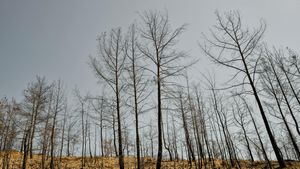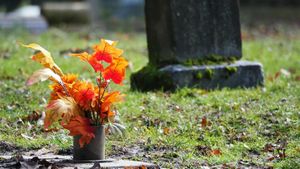On January 29, 2025, tragedy struck during the Maha Kumbh Mela, India's largest religious gathering, when a stampede at Prayagraj, also known as Allahabad, left at least 30 dead and over 60 injured. Hundreds of thousands had gathered at the Sangam Nose for the holy dip during the Mela when chaos ensued. Uttar Pradesh's Director General of Police (DGP) Prashant Kumar confirmed the fatalities and injuries, stating investigations are underway by analyzing images and videos captured during the disaster.
Despite the severity of the incident, it was reported by The Hindu on January 30, 2025, no formal First Information Report (FIR) had been lodged as of the latest updates. Chief Minister Yogi Adityanath ordered both judicial and police probes to investigate the circumstances surrounding the stampede. The judicial inquiry consists of three members led by retired Justice Harsh Kumar of the Allahabad High Court, joined by former DGP V.K. Gupta and retired IAS officer D.K. Singh.
The opposition, particularly the Samajwadi Party, voiced strong concerns over the management of the Kumbh Mela. MP Ram Gopal Yadav accused Adityanath of "administrative negligence," claiming the reality on the ground varied drastically from the government’s portrayal of the situation. He asserted witnesses had suggested the death toll could be significantly higher, stating, "According to witnesses, thousands of people were killed, some thrown alive in the Ganga, others buried." These statements were reported independently by IANS.
Akhilesh Yadav, another key figure from the Samajwadi Party and former Chief Minister of Uttar Pradesh, amplified these claims, demanding details on the death toll from the governmental authorities. He noted, "Fifteen thousand people are searching for their missing relatives, yet the government refuses to provide information." Such accusations spurred opposition parties to disrupt Parliament proceedings, calling for urgent discussions on the incident.
The Kumbh Mela is traditionally seen as the largest single gathering of human beings for religious purposes, with the current festival expected to attract about 400 million pilgrims over its duration of six weeks. Cardinal Filipe Neri of the Conference of Catholic Bishops of India offered prayers for the victims and condemned the tragedy during their assembly. “It is heartbreaking to witness such calamity during this sacred event,” he remarked, reflecting the sorrow shared widely across the nation.
Adding to the criticism, Yadav recounted the historical precedent set by the 1954 Prayag Kumbh Mela stampede, which resulted in 400 fatalities. He lamented the current government's perceived lack of urgency to communicate numbers and established accountability. “Where the responsibility should have been to prioritize public safety, there was clearly political campaigning,” he remarked.
Accusations of official bodies mishandling victims emerged, with Yadav claiming bodies from the incident were loaded onto JCB machines and trucks unceremoniously, leaving the public to question whether proper dignity was afforded to the deceased. "God knows how many slippers, clothes, and sarees were lying there as they were lifted by JCB machines and tractor trolleys," he asserted, drawing the ire of those watching the disaster relief efforts.
The pressure around the administration intensified as reports emerged of those missing from the festival without any communication from the government. Opposition bodies quickly rallied around the call for transparency and truth about the events and required arrangements for the Mela. Amidst the uproar, state authorities lagged behind the public’s demand for information, adhering to government silence.
On January 30, during the CCBI assembly meeting, the gravity of the situation reflected throughout the religious community as Cardinal Poola requested special prayers for the stampede victims. The somber mood reverberated through various sectors of society reflecting on the past tragedies of the Kumbh Mela, where humanity gathers yet, tragically, faces calamity.
Strikingly, the government’s response to the disaster faces scrutiny over prioritizing VIP treatment and arrangements over the organization of adequate safety and public welfare measures. This sentiment was shared broadly during parliamentary protests, emphasizing the people's need for accountability over current leadership and their methods.
Further complicity was offered as Yadav remarked on discrepancies within the current governmental handling compared to historical responses, stressing, “The miraculous thing is bodies were found, yet the government refuses to acknowledge this.” The opposition's tunnel vision on accountability and communication is likely to shape upcoming political narratives.
The aftermath of this stampede has not only opened old wounds from religious gatherings past but also placed the spotlight firmly onto the present, as voices amplify calls for responsibility, remembrance, and reform. With investigations underway, the nation watches closely to see how the tragedy influences both governance and faith practices moving forward.
With the situation still developing, families await clarity on the fates of their loved ones, as leaders continue to demand transparency and justice.



